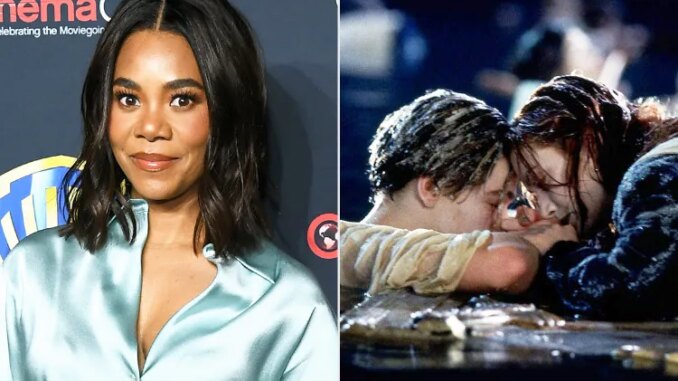
The Floating Door and the Frailties of Heroism: On Regina Hall, Rose, and the Titanic of Expectations
Regina Hall’s pronouncement on the infamous “door debate” of Titanic – that Rose DeWitt Bukater, Kate Winslet’s character, could have tried harder to make room for Jack Dawson, Leonardo DiCaprio’s character – landed with the force of an iceberg hitting the hull of popular opinion. While the argument itself isn't new, Hall's position, delivered with her trademark comedic candor, ignited a fresh wave of discourse about a scene that has become a cultural touchstone. More than just a quibble about buoyancy, Hall's statement unveils a deeper commentary on the complexities of heroism, the burden of expectation, and the subjective nature of survival.
The “door debate” is, at its core, a physics problem masquerading as a moral dilemma. Could both Jack and Rose have fit on the floating piece of wreckage, thus saving Jack from the icy depths? Science, armchair engineers, and late-night talk show hosts have dissected the scene frame-by-frame, often arriving at the conclusion that yes, Rose could have shuffled over, shared the space, and potentially prevented Jack's death. But the narrative surrounding Titanic is far more intricate than a simple equation of surface area and displacement. It's a story steeped in romance, class conflict, and the stark reality of a tragic disaster.
Hall’s perspective challenges the romanticized image of Rose as a victim of circumstance, a damsel in distress swept up in a whirlwind of love and tragedy. By suggesting Rose could have "tried harder," Hall invites us to reconsider her agency within the narrative. Was she truly powerless to alter Jack's fate, or did her own self-preservation unconsciously override her potential for altruism? This is not to villainize Rose. Rather, it’s to acknowledge the inherent human instinct to survive, even at the expense of another. In the chaotic aftermath of the sinking, clinging to a piece of debris, logic and selflessness can easily be overwhelmed by the primal urge to live.
However, the weight of expectation that Hall’s statement implies is also worth exploring. We, as an audience, often impose unrealistic standards upon fictional characters, demanding they embody a perfect version of heroism that defies human fallibility. Rose is not simply a character; she is a symbol. She represents hope, resilience, and the enduring power of love in the face of tragedy. To acknowledge her potential shortcomings in the “door scene” is to potentially tarnish this idealized image. Perhaps this is why the debate continues to rage – because admitting Rose might have done more forces us to confront the flawed nature of humanity itself.
Moreover, the “door debate” acts as a microcosm of larger societal anxieties. In times of crisis, we often question individual responsibility versus collective responsibility. Did Rose have a moral obligation to sacrifice her own comfort, potentially risking her own survival, to save Jack? Or was she simply acting within the parameters of self-preservation, a fundamental human right? These questions resonate far beyond the confines of a romantic film, prompting us to examine our own values and how we might act in similar life-or-death scenarios.
In conclusion, Regina Hall's seemingly simple statement about Rose "trying harder" in the Titanic debate reverberates far beyond the surface of a fictional narrative. It serves as a catalyst for examining the complexities of heroism, the burden of societal expectations, and the subjective nature of survival. The "door debate" is not just about physics; it is about the enduring human struggle between self-preservation and altruism, and the constant re-evaluation of what it means to be a "good" person in the face of unimaginable tragedy. Perhaps the real tragedy is not that Rose couldn’t make room for Jack, but that we continue to demand perfection from imperfect characters in a world that rarely offers it.